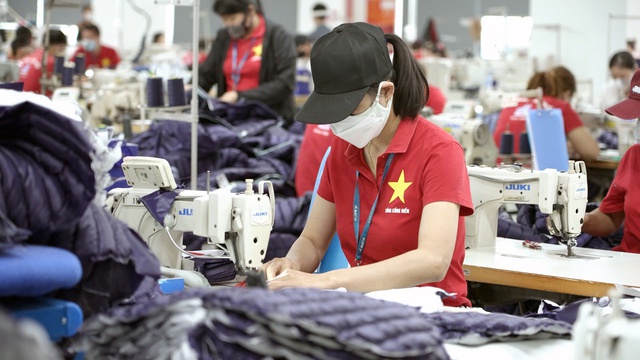Specifically, certain goods will not be subject to reciprocal tariffs. These include: items subject to tariffs under other orders (50 USC 1702(b); steel/aluminum and auto/auto parts already subject to tariffs under other regulations; copper, pharmaceuticals, semiconductors, and lumber; all items that may be subject to tariffs in the future; gold bullion; energy; and certain other minerals not available in the United States.
The International Emergency Economic Powers Act of 1977 (IEEPA) is intended to address national emergencies caused by trade deficits. According to the announcement, the April 2 IEEPA order also includes amended authority that allows President Donald Trump to raise tariffs if trading partners retaliate or reduce tariffs if trading partners take significant steps to correct non-reciprocal trade agreements and engage with the United States on economic and national security issues.
Many groups of goods are not subject to reciprocal tax this period.
PHOTO: NGOC THANG
Currently, the average import tax rate that the US is applying to Vietnamese goods is as follows: Machinery, equipment, television equipment... 2%; wooden furniture, beds, mattresses... 18%; footwear 22%; clothing and accessories, knitted or crocheted 20%; toys 13%; plastic and plastic products 5%; rubber and rubber products 7%; leather goods, belts, handbags 24%; means of transport from locomotives, railway cars, trams, accessories... 31%.
In the Southeast Asian region, in addition to Vietnam, which is subject to a 46% reciprocal tax on 90% of total imported goods from Vietnam (46%, 90%), Thailand is subject to a 36% tax on 72% of total goods, followed by Indonesia (32%, 64%), Malaysia (24%, 47%), the Philippines (17%, 34%), and Singapore (10%, 10%).
Notable among the list of countries and economies subject to this tax are China (34%, 67%), the European Union (20%, 39%), Sri Lanka (44%, 88%), Bangladesh (37%, 74%), Taiwan (32%, 64%), Switzerland (31%, 61%), South Africa (30%, 60%), Pakistan (29%, 58%), India (26%, 52%), South Korea (25%, 50%), Japan (24%, 46%), and Israel (17%, 33%).
Thanhnien.vn
Source: https://thanhnien.vn/nhung-hang-hoa-nao-cua-viet-nam-khong-bi-ap-thue-doi-ung-185250403090953333.htm





![[Photo] Closing of the 11th Conference of the 13th Central Committee of the Communist Party of Vietnam](https://vstatic.vietnam.vn/vietnam/resource/IMAGE/2025/4/12/114b57fe6e9b4814a5ddfacf6dfe5b7f)


![[Photo] Overcoming all difficulties, speeding up construction progress of Hoa Binh Hydropower Plant Expansion Project](https://vstatic.vietnam.vn/vietnam/resource/IMAGE/2025/4/12/bff04b551e98484c84d74c8faa3526e0)















































































Comment (0)